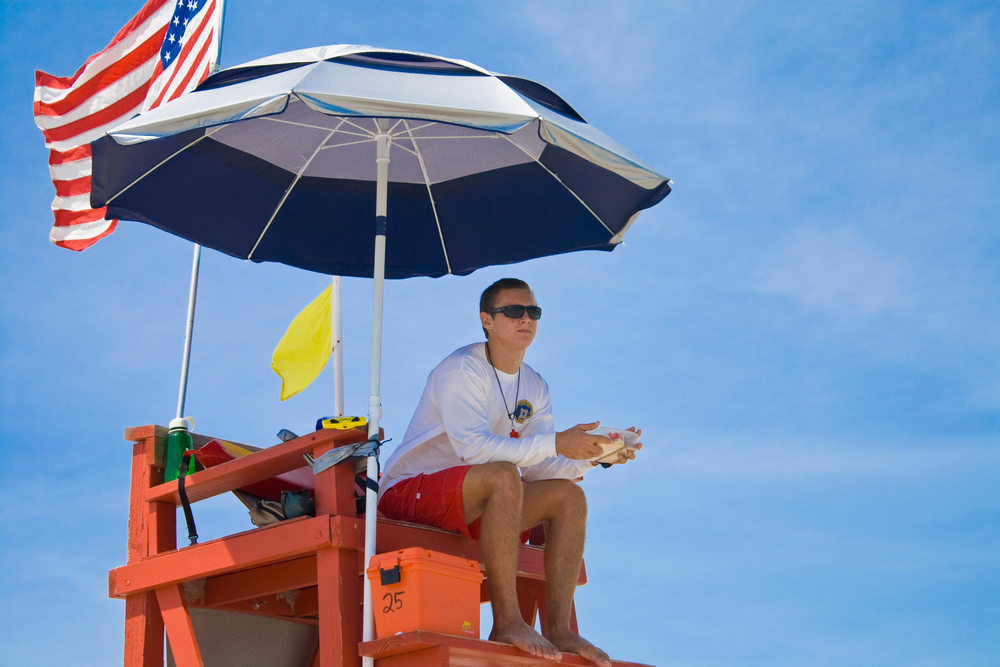Why a Good Lifeguard Never Gets Wet

There’s a saying in the lifeguard business — “A good lifeguard never gets wet.” How is that possible, considering that lifeguards spend entire days around giant pools of water?
If you’re a lifeguard, “never getting wet” doesn’t mean you can’t hop in the pool to cool off during your break or after your shift. What it means is that you keep such a close watch over the pool, you lower your risk of an emergency situation that requires you to jump in. How do you make the pool a safe place to swim, lounge, and play? What steps can you take to make it less accident-prone?
Stay up to date on your training.
As you probably know, you need to undergo some basic training before you can start lifeguarding. You’ll learn how to respond to emergency situations and to handle routine pool operations, and you’ll pick up strategies and techniques that allow you to effectively scan and survey the water, while fulfilling your other responsibilities as a lifeguard. In addition, lifeguard training teaches you how to recognize and respond to early distress signs, so you can spot potentially dangerous situations before they become an emergency.
Be proactive rather than reactive.
Instead of waiting for a situation to escalate to the point that you need to intervene, a good lifeguard creates a safe pool atmosphere and stays alert at all times while on duty. Yes, you’ll have to adhere to the rule of no texting or surfing the web on your smartphone while on duty! But by remaining distraction-free, you can focus on swimmers and other pool patrons — and even enjoy the fresh air and sun — all while keeping a watchful eye over the pool.
Your pool patrons know the rules.
A good lifeguard is a good communicator, and talks to all swimmers (and their parents) about the pool rules. It might not sound like much fun to be the enforcer, but a friendly conversation about the dangers of running, pushing, and other types of infamous “horseplay” in and around the pool can help your patrons get the most out of their pool time. When everyone at the pool knows how to be safe, it makes your job as a lifeguard far easier and more fun, and lowers your rate of distractions.
You work well with your lifeguard team.
While some pools are small enough for a single lifeguard to monitor, many pools call for multiple lifeguards to be on duty at the same time. When you work with a team of lifeguards to supervise a pool, it’s important that you communicate and collaborate with each other about work stations, breaks, responsibilities, and concerns. For instance, you don’t want everyone on your team looking only at the deep end. Work as a team to divide and conquer, and talk through any problems that arise as soon as you can.
This all sounds like serious stuff — and it is serious. But in practice, keeping the pool safe is pretty easy when you stay on top of your A game and maintain open lines of communication between you, your fellow lifeguards, and your patrons. If you do it well, you get to go home dry at the end of the day — that is, unless you decide to end your shift with a refreshing dip in the water!
Ready to see if you can go the whole summer without getting wet? Apply for a lifeguard position (and training) on American Pool’s Guard for Life website, and we’ll show you how it can happen.
